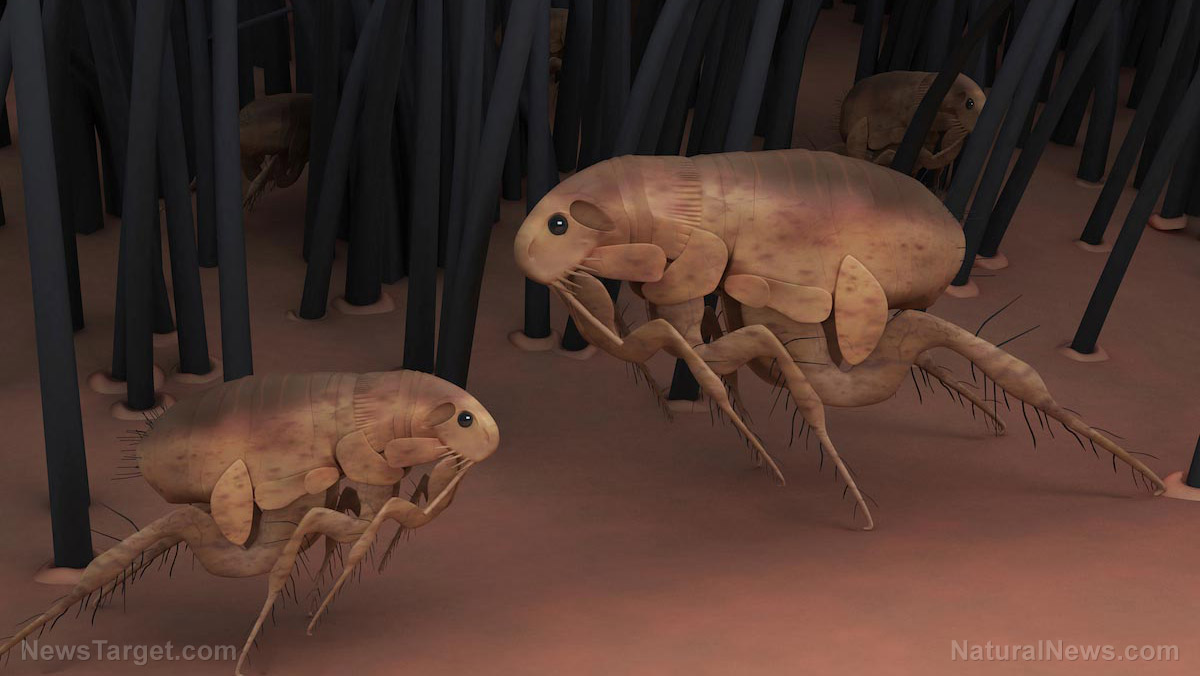
You spend a lot of time and money to set up your food stockpile so you should make sure that it's protected from pests and rodents. You can do this naturally with diatomaceous earth. (h/t to TheSurvivalMom.com)
How does diatomaceous earth work for pest control?
Diatomaceous earth (DE) is made from the fossilized remains of diatoms or ancient algae. It’s both non-toxic and all-natural.
DE is harvested from the sediment of dried-up water bodies. There are two main types of diatomaceous earth:
- Food grade, which is suitable for consumption
- Filter grade, which is inedible but has many industrial uses
The diatoms in diatomaceous earth are largely made up of a chemical compound called silica. This compound is commonly found in nature as a component of everything from sand, rocks, plants and humans. However, DE is a concentrated source of silica, which makes it unique.
Commercially available diatomaceous earth can contain up to 80 t0 90 percent silica, several other trace minerals and small amounts of iron oxide or rust.
When DE is used for insect control, bugs will crawl through the material and it clings to the bodies of bugs. DE scratches their exoskeleton, which causes a dehydrating effect.
Eventually, the insect's body dries up until it dies. This usually takes around 48 hours.
Remember that DE will also kill beneficial insects, so don't use it in your home garden. If you're using DE for food storage or on your pets, make sure you only buy food-grade DE that is safe for both humans and animals.
Three ways to use diatomaceous earth for pest control
DE can be used for pest control in your food storage, general pest control and for pets.
Protecting your food storage with DE
To keep pests out of your food stockpile, mix DE in with oats, rice and wheat.
Use one cup of food-grade diatomaceous earth for a five or six-gallon bucket of food. Leave enough headroom at the top of the bucket or bag so you can shake the container. This ensures that the DE is thoroughly dispersed.
When using a smaller container, adjust the amount of DE accordingly. You can also lightly sprinkle DE around the baseboards of your pantry room and at the base of any outdoor windows to keep pests out of your stockpile. (Related: 8 Natural ways to keep your survival stockpile rodent-free.)
Using DE for general home pest control
For general pest control inside your home, place shallow containers of diatomaceous earth behind the refrigerator, on windowsills, in crawl spaces, in the attic, or anywhere else you find insects. Within days, those insects will be gone.
If bugs are getting inside your house from outdoors, sprinkle diatomaceous earth around the outside of your home, especially where shrubs and plants grow close to your foundation.
If ants are a problem, like pesky fire ants, sprinkle diatomaceous earth directly on the anthills where it will be tracked into the colony. This can help get rid of ants without the need for toxic insecticides.
Controlling fleas and parasites on pets with DE
If your dogs and cats and full of fleas, you can use diatomaceous earth to treat your furry friends.
First, bathe your dog or cat. The fleas might then escape from your pet into the bathtub. Once your pet is dry, work food-grade DE into its fur with your fingers and a brush.
If there are fleas inside your home, sprinkle the carpet in every room with DE. Use a rake to work the powder down deep into the carpet and then let it sit so it can work for a few days.
Finally, vacuum up the DE, dust the furniture and your home should be free from any remaining fleas.
If your pets have parasites, mix a small amount of food-grade diatomaceous earth into their food for three or four days until the worms are eliminated. Since DE is harmless, you can repeat this process whenever necessary.
Other tips for using DE
When properly stored, diatomaceous earth has an indefinite life span. It’s not a chemical, so its potency won't be unaffected by time.
Keep DE clean and dry, and it should be good to go whenever you need it. Although DE doesn’t lose potency, it can lose effectiveness when it gets wet because moisture prevents the scratching and dehydrating effect necessary to kill bugs.
Use food-grade diatomaceous earth to protect your food supply from pests and rodents.
Watch the video below to know more about the other uses of diatomaceous earth.
This video is from the Natural News channel on Brighteon.com.
More related stories:
The survival uses of diatomaceous earth.
Why and how to use diatomaceous earth for your body and home.
What you need to know about bed bugs (and natural ways to get rid of them).
Preppers: Protect your stash from these four pests.
Stop slugs from ruining your garden with these natural strategies.
Sources include:
Please contact us for more information.

















